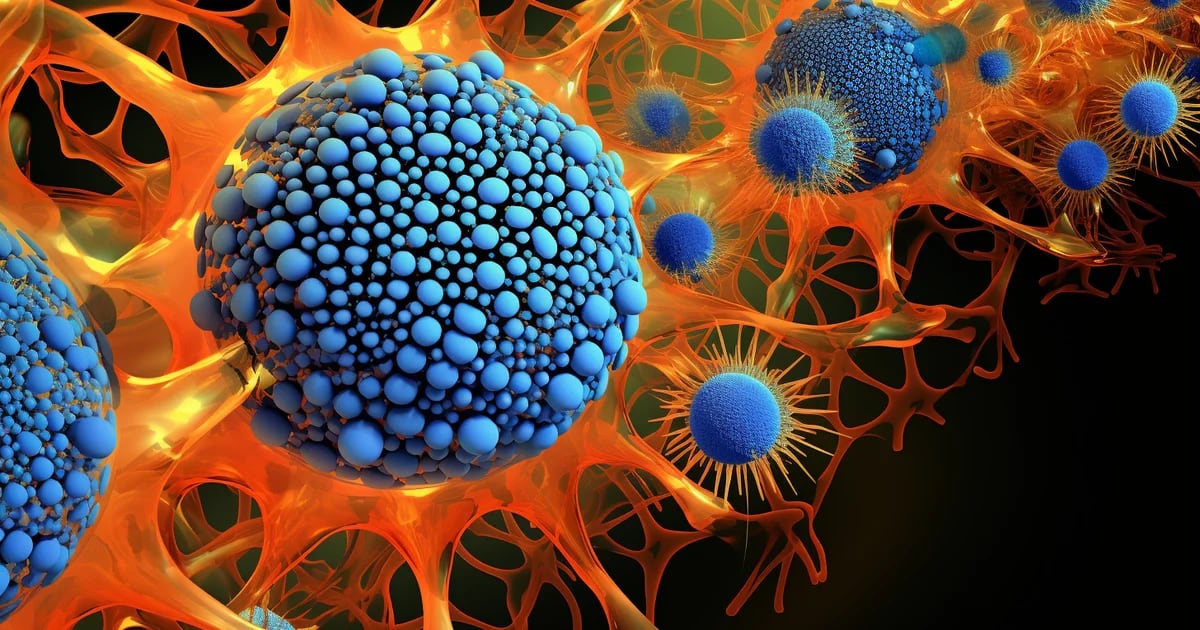Almost every year they are diagnosed 20 million new cases of people with some type of cancer and there are 10 million deaths in the world, according to the International Agency for Cancer Researchwhich depends on the World Health Organization (WHO).
There is a large number of scientific investigations underway that range from prevention, diagnoses and treatments to care for the quality of life of patients. Since last friday one of the most important congresses in oncology was heldwhich annually organizes the American Society of Clinical Oncology (better known by its acronym ASCO), in the city of Chicago. During the event, different advances were presented.
The ASCO 2024 annual meeting featured more than 200 sessions under the theme “The art and science of cancer care: from comfort to cure.” Experts focused on the latest developments in targeted therapies, immunotherapy and research that seeks to improve quality of life and patient outcomes. More than 5,000 scientific articles were submitted and there were more than 44,000 registered participants.
Lung cancer is still the main cause of cancer death, with an estimated 1.8 million deaths (18%) in 2020. At the congress in Chicago, studies were presented that tend to convert this pathology into a chronic disease .
In dialogue with Infobae, Diego Kaenpresident of the Argentine Association of Clinical Oncologyhighlighted that there were two studies at the ASCO congress that demonstrate that chronication of the disease is possible.
“One of the studies is CROWN, which was done with patients with advanced lung cancer, stage IV with the ALK mutation. “It was shown that 62% of patients receiving an oral ALK inhibitor are alive after five years and without disease progression,” he stated.
Another study, called LAURA, on lung cancer also surprised participants. It was directed by Suresh Ramalingam, from the Winship Cancer Institute of Emory University. He showed that the drug, osimertinib It significantly prolongs patients’ lifespan without their cancer getting worse.
“In a group of patients in stage III who cannot undergo surgery, it was found that by receiving treatment they can make the disease become chronic,” commented Kaen.
Among the therapies, treatment results were presented with two Immunotherapies before surgery in patients with skin cancer which has spread to the lymph nodes. They found that patients who received the immunotherapies had better outcomes than those who did not receive the drugs before lymph node removal procedures, based on data from a late-stage trial.
The study was carried out with 423 patients with stage 3 melanoma. It was detected that 83.7% of the patients who received immunotherapies before surgery were alive without the disease worsening after 12 months.
Given the results, “this is likely to change our practice,” said Dr. Lynn. “Many patients will be able to be treated with a very limited course, even if it has a little more toxicity, but they won’t have to complete a whole year… It’s a really good result,” she said, as reported by the agency. Reuters.
The study was sponsored by the Netherlands Cancer Institute and the Melanoma Institute of Australia and funded by the Bristol Myers Squibb laboratory and the National Health and Medical Research Council of Australia.
During the congress, several important studies were presented on personalized treatments based on geneticsand those that stood out the most were those aimed at ER+/HER2− metastatic breast cancer.
One of the most relevant studies was on a KAT6 inhibitor first class, called PF-07248144. This drug showed promising data in its Phase I and demonstrated its potential to significantly improve treatment by specifically targeting genetic mutations in tumors. This research highlighted how these inhibitors can offer a more effective alternative with fewer side effects compared to traditional treatments.
Another important study analyzed the combination of palbociclib (IBRANCE®) with a aromatase inhibitorcompared to the use of the inhibitor alone, in older patients with HR+/HER2− metastatic breast cancer.
This analysis, based on data from the program SEER-Medicareshowed that the therapeutic combination significantly improves overall survival. In this way, the results support the effectiveness of the combined therapieswhile underlining the importance of adapting treatments to the specific characteristics of patients.
Additionally, data were presented from a Phase II study that evaluated the combination of tucatinib and trastuzumab in patients with HER2-mutated metastatic breast cancer previously treated. This study showed remarkable clinical activity, offering new hope for patients with limited therapeutic options. These personalized approaches improve response rates and quality of life for patients, representing a significant step toward more effective and less invasive treatments.
Vaccination against human papillomavirus (HPV) has been available since the 2000s, which is an effective way to prevent infection and to develop different types of cancers. During the congress in Chicago, the results of an analysis were presented that revealed that men who received the HPV vaccine had a 56% lower risk of developing head and neck cancers.
The main researcher was Jefferson DeKloe, from Thomas Jefferson University in Philadelphia. The study included 760,540 vaccinated and unvaccinated men, and 945,999 vaccinated and unvaccinated women against the virus. The results identified that immunized men had a 54% lower risk of all HPV-related cancers, and a 56% lower risk of head and neck cancers.

